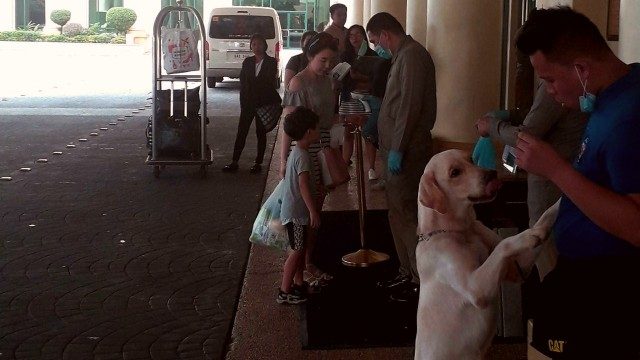SUMMARY
This is AI generated summarization, which may have errors. For context, always refer to the full article.

CEBU CITY, Philippines – Room occupancies in the Philippines have taken a hit due to the novel coronavirus travel bans, according to the Department of Tourism Central VIsayas.
There was about a 20% reduction in hotel occupancies across Cebu compared to the same period in 2019, the DOT-7 reported.
Shalimar Tamano, DOT-7 regional director, said on Friday, March 6, that this data does not include Air BNB properties.
Hotels in Bohol were hit even harder with a 35% reduction in hotel occupancies compared to the same period in 2019.
Some of the top visitors to the region include countries with known novel coronavirus with 37% of visitors coming from South Korea, 17.63% from China, and 12.85% from Japan.
Central Visayas, home to the 2nd largest international airport in the country, received a total of 4.2 million visitors from other countries in 2019.
Tourism is a sizeable contributor to the economy of Central Visayas. In 2019, tourism generated about P97 billion in revenues.
Tamano said that he expected the travel bans due to the novel coronavirus would hinder the DOT from hitting its 2020 targets.
“Best case scenario is that we can make up for the loss in the 3rd or 4th quarters,” Tamano said during Friday’s press conference.
The first confirmed COVID-19 case traveled through Central Visayas, including Cebu and Dumaguete, before going to Manila.
The 26 South Koreans from virus-hit Daegu City, South Korea, were also quarantined here in Cebu.
According to national data from the Department of Tourism, the Philippines stands to lose P42 billion in revenues due to the coronavirus.
Tamano said they are continuing dialogue with the tourism sector to find short-term solutions for businesses suffering revenue losses.
Some solutions, he said, include tax breaks for hotels, special rates for regional tourists who patronize local hotels, and financial aid from the government.
“Financial aid would be the most challenging because we’re dealing with the BIR (Bureau of Internal Revenue), DBM (Department of Budget and Management), and other agencies,” Tamano said.
While the average occupancy drop was at 20% in Cebu, several higher end hotels which did not want to be named told Rappler they reported up to 40% to 60% reduction in occupancy compared to the same period in 2019.
“But the upside to this is sales and discounts for the local tourists,” the DOT-7 director said.
The Department of Health (DOH) also confirmed on Friday that two Filipinos tested positive locally for the 2019-nCoV.
Prior to the Filipino cases, the Philippines had 3 confirmed cases who were Chinese tourists. Two of them have already recovered and the other died.
As of Friday, the DOH has probed a total of 678 patients for possible infection. Of this number, only 41 remain admitted in hospitals nationwide while 634 have already been discharged. – Rappler.com
Add a comment
How does this make you feel?
There are no comments yet. Add your comment to start the conversation.